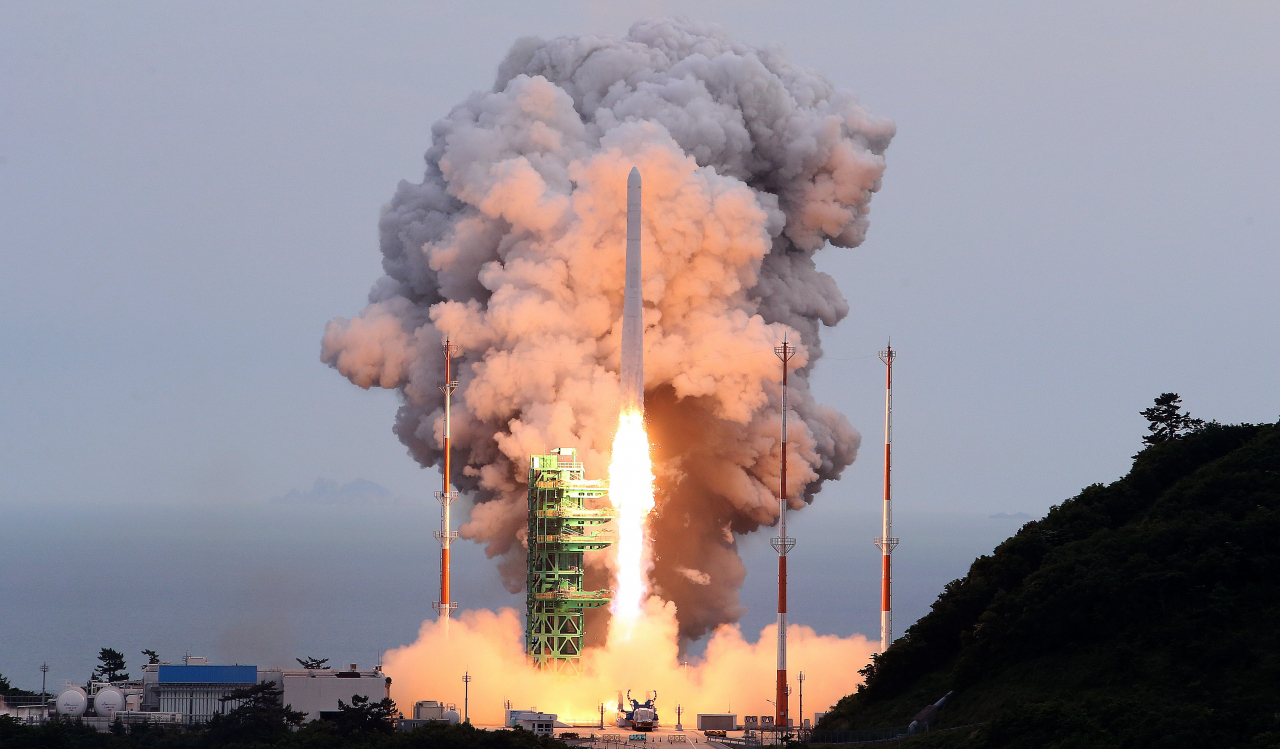New Korean space agency to blast off in H1
Space experts, industry officials upbeat about KASA’s role in supporting private sector, expanding global cooperation
By Kan Hyeong-wooPublished : Jan. 9, 2024 - 14:46

South Korea’s new space body, Korea Aerospace Administration, or KASA, is finally set to take flight with the country poised to join the global space race.
The National Assembly on Tuesday passed special bills required for establishing and managing the space aviation agency to allow legal grounds for KASA.
KASA, inspired by the US National Aeronautics and Space Administration, will be established in Sacheon, South Gyeongsang Province. The space agency is expected to be officially launched in either May or June, as it takes four months for the bills to take effect.
The current administration has gone all-out to carry out the necessary steps to set up KASA, as it was one of President Yoon Suk Yeol’s campaign pledges.
The Ministry of Science and ICT submitted the proposed bill to the National Assembly in April last year but political stand-off between the ruling and main opposition parties dragged out the process. Lawmakers clashed over various aspects such as the level status of the KASA head, concerns over possible overlapping of research and development areas with the existing space institutes and KASA’s independence.
The two sides eventually found common after a nine-month-long discussion. KASA will belong to the Ministry of Science and ICT and be overseen by the Presidential National Space Committee. The country’s two existing space institutes -- the Korea Aerospace Research Institute and Korea Astronomy and Space Science Institute -- will be incorporated into KASA to prevent repetitive, inefficient R&D efforts.
Space experts and industry officials advised that the new agency needs to swiftly find the right track from the very beginning and play the role of a control tower efficiently.
“Unlike in the past, space has become an area where economic and diplomatic factors take up bigger parts of the whole sector,” said Paul Yun, a Korean American solar system ambassador for NASA.
“KASA needs to serve as a coordinator for Korea’s overall space sector that can integrate the industry, researchers and academia. It should also be able to handle and support diplomatic issues, possibly related to the country’s national defense. NASA has played a similar role as it not only took charge of R&D efforts,but also guided the US’ space policymaking decisions.”
Yun noted that Korea’s new space agency can effectively and sustainably lead the country’s road map in the new space era in the long term.
“(KASA) will incorporate the roles of all other state-run space divisions except for that of the Defense Ministry, which is a first here,” said Cho Jin-soo, former chairman of the Korean Society for Aeronautical and Space Sciences.
“How to manage all those used-to-be spread out teams as a whole and deal with the trial-and-error stage quickly in the early phase will be important. Another thing is about whether the Ministry of Science and ICT can efficiently secure enough budget for KASA.”
Cho also cautioned against thoughtless recruitment of foreign talent, as the bill allows the hiring of foreign nationals and multinationals and offers unprecedented sums in salary for a government official.
“Back in the day, there were few talents in Korea. That’s why the government brought in Korean Ph.D. holders from the US. But now there are excellent talents here,” Cho added.
The preparatory office for KASA said in March that the new space body could offer similar salaries as those of NASA employees, estimated to be between 200 million and 300 million won ($152,000-$228,000). Science Minister Lee Jong-ho noted in July that KASA will have about 300 staff members with an annual budget of approximately 700 billion won.
Regarding expectations for KASA, officials at space firms underlined the importance of global cooperation and called out the need to energize the industry.
“(Companies) cannot make their business models aimed at only the domestic market,” an anonymous official working at a space company told The Korea Herald.
“To score overseas contracts, KASA should put in efforts together with the industry for international cooperation. On top of that, the government should offer (state-funded) projects that can play the role of priming water as our country’s space ecosystem has not been fully activated yet.”
Some researchers expressed concerns over having another bureaucratic body that can make R&D efforts even more complicated than they already are.
“A project proposal or decision-making process usually takes a long time because of all the approvals required at each level of hierarchy within my organization,” said a researcher at a state-run space institute who wished to remain nameless.
“I hope KASA can make things go more smoothly instead of slowing down things for research efforts.”
The country successfully conducted a third launch of its homegrown Nuri rocket, also known as the Korea Satellite Launch Vehicle-II, in May last year, becoming the seventh country in the world to obtain the capability to put a homegrown satellite weighing 1 ton into orbit with a homegrown launch vehicle.




















